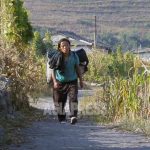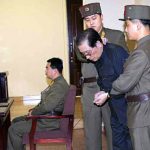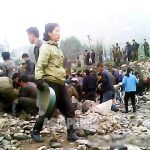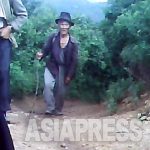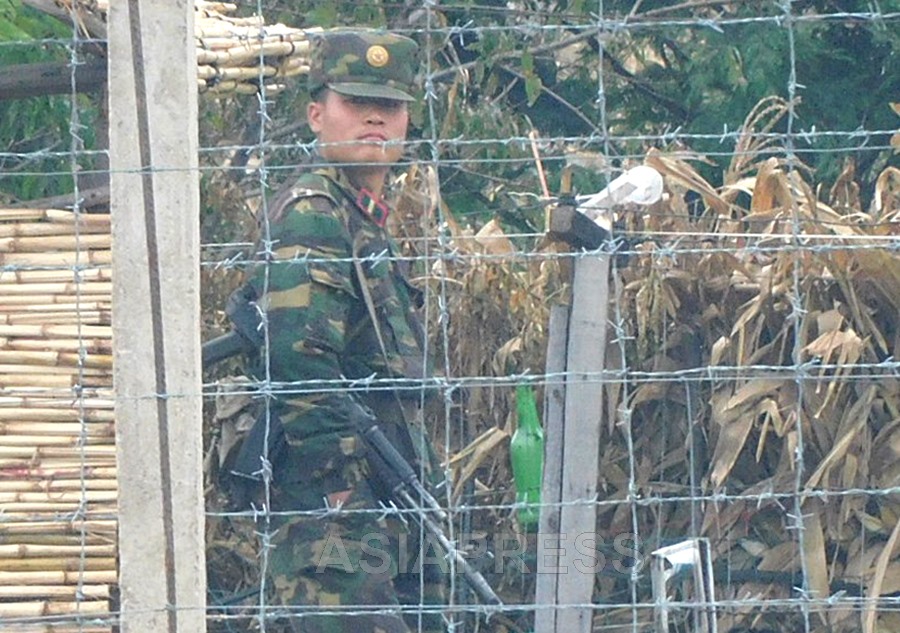
Defecting and smuggling are no longer impossible…this is what people along the Yalu and Tumen rivers are saying about the controls placed on the border. What are the realities of the strict controls placed on the border with China by the Kim Jong-un regime? A border guard explained how border guards are monitoring the border to an ASIAPRESS reporting partner. (KANG Ji-won / ISHIMARU Jiro)
In August, the reporting partner, who lives in Yanggang Province, met with “A,” a noncommissioned officer who works as a border guard in the upstream area of the Yalu River. Starting in July, North Korean authorities loosened COVID-era restrictions on soldiers being able to leave their bases. “A” is a veteran border guard in his late 20s. Another reporting partner in North Hamgyung Province surveyed people on the border to hear their thoughts.
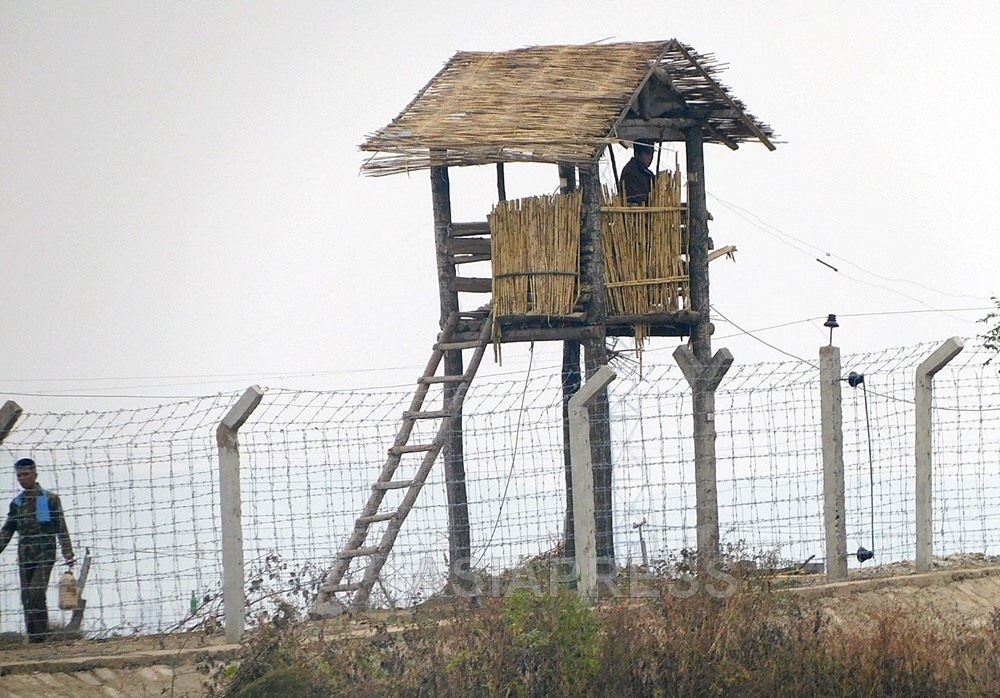
◆ Government employs various methods to stop corruption between locals and soldiers
After the 1990s, people living in the China-North Korea border region have benefited from being able to cross the border and smuggling activities. Border guards have also benefited by receiving bribes or meals in exchange for turning a blind eye and, sometimes, being involved in smuggling themselves. Now, however, this relationship between local people and border guards, and the corruption they engaged in, almost no longer exists. A reporting partner in Hoeryong provided the following explanation:
“Soldiers who were stationed in the border patrol for several years earned money to buy a house or to get married, but now that’s no more than a dream. Even local people are treating the soldiers more coldly, so there’s no one giving soldiers meals on credit anymore.”
The authorities adopted a plan to reduce contact between the border patrol and local people to prevent corruption at any cost. The reporting partner told ASIAPRESS what “A” told him:
“Bases are changing the areas of deployment (of border patrol soldiers) without any warning. Soldiers are informed about which sentry post they’ll work on the day they are transferred, so it’s now impossible for them to arrange times and places to meet with smugglers as they did in the past.
The authorities started to shut down roads on the border along with those roads heading into mountainous areas (in the upper stream area of the Yalu River) from 7 PM each night. They intend to prevent smuggling and defections from occurring in places with little human traffic.”
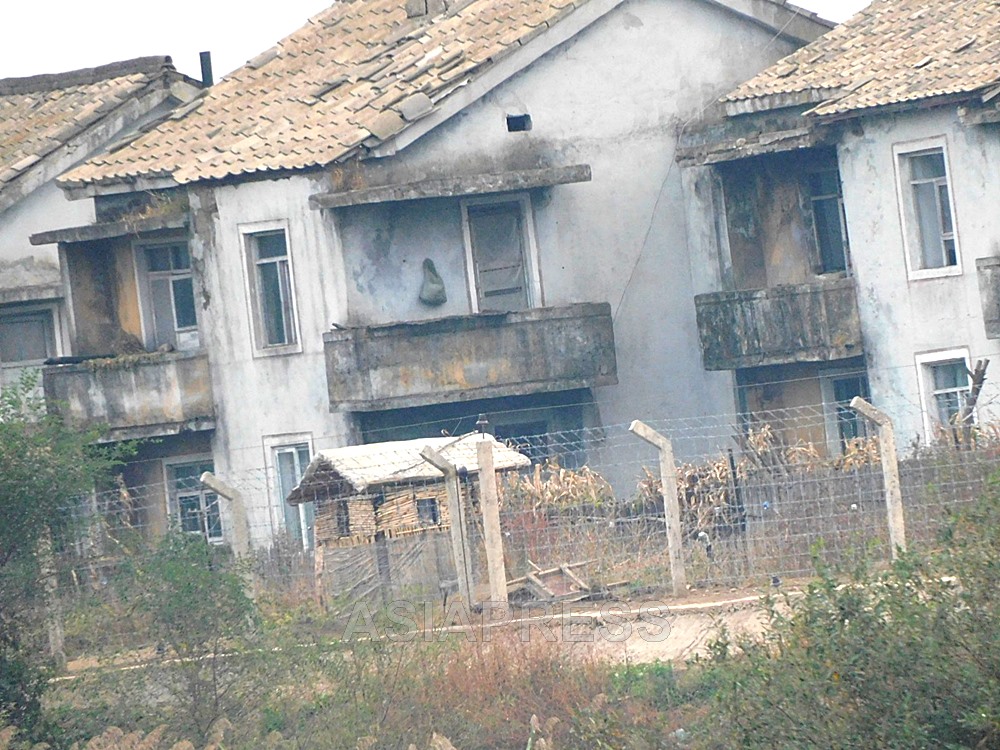
◆ Soldiers given rewards of party membership, promotions if they catch defectors or stop smuggling
In North Korea, there are paramilitary organizations made up of laborers, farmers, and students that are organized apart from the regular military. These paramilitary forces are ordered to build and man sentry posts and checkpoints along the border. These forces closely monitor people trying to approach the riversides and contact between border patrol soldiers and local people. In fact, they all monitor each other.
The border patrol, meanwhile, teams up with local police and government officials to monitor people approaching rivers on the border. “A” gave the following explanation:
“The border patrol maintains close contact through cell phones with the paramilitary forces, local police, and state security officials. For example, there’s a system in place that works as follows: If a police officer inspects a civilian house and finds that there’s someone missing or a person who has left the house and not come back, they immediately contact the border patrol, which then alerts sentry posts along the border. Meanwhile, neighborhood watch units immediately alert the police if someone from another area comes to stay in their area.
※ Neighborhood watch units are North Korea's lowest administrative units and are typically made up of 20-30 households.
The authorities give out rewards to border patrol soldiers who actively crack down on smuggling and border crossings.
“If they catch even one border crosser or smuggler, they are provided with party membership, vacations, or promotions. There are whistleblower boxes set up on bases to allow soldiers to anonymously report on their superiors’ illegal activity, and the authorities tell soldiers to actively report misconduct.”
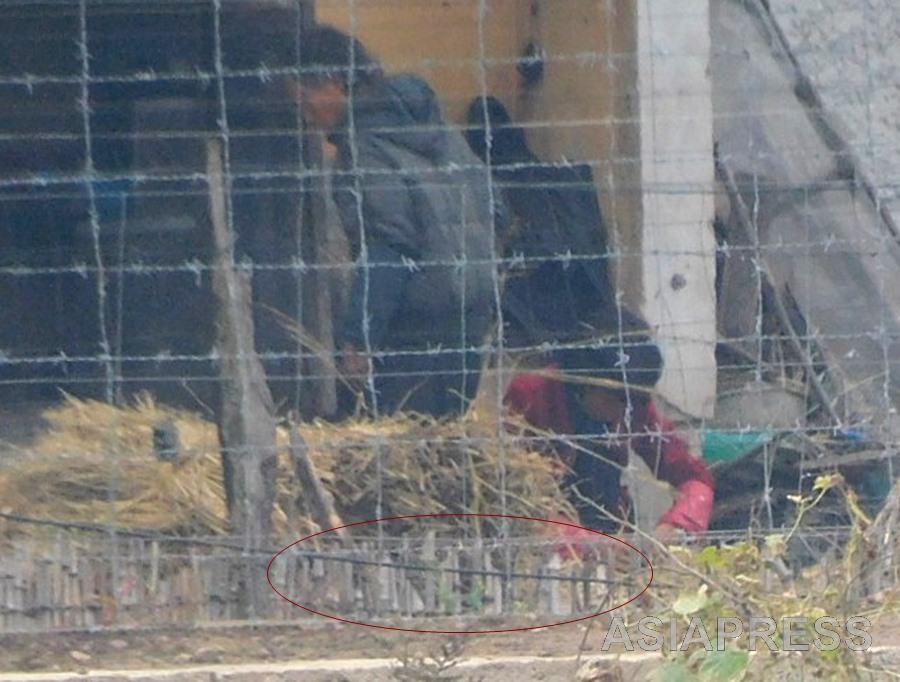
◆ Government warns that anyone seen approaching border after 7 PM will be shot at
The reporting partner in Hoeryong told ASIAPRESS that the border security situation on the Tumen River is similar, explaining:
“The border patrol soldiers’ deployment area and workplaces are changed frequently. They can’t even think of smuggling activities based on prearranged (times or places) like before, and if they do try to smuggle, they would be putting their lives at risk, regardless of their status as border guards.
In the past, people came out to the Tumen River to fish and do their laundry, but they can’t do those things anymore, though, depending on the area, people can get permission to come out to the riverside at prearranged times. There are sentry points all along the river border and the border patrol and Farmer and Worker Red Guard units confirm the identities of those passing by. The authorities are warning everyone that anyone caught approaching the border after 7 PM will be shot at.
Roads heading to unpopulated areas (near the border) are blocked off by units of two to three border guards, despite those areas not being buffer zones. They stop both vehicles and people to inspect them, so, at night, anyone living nearby is unable to leave their place of residence.”
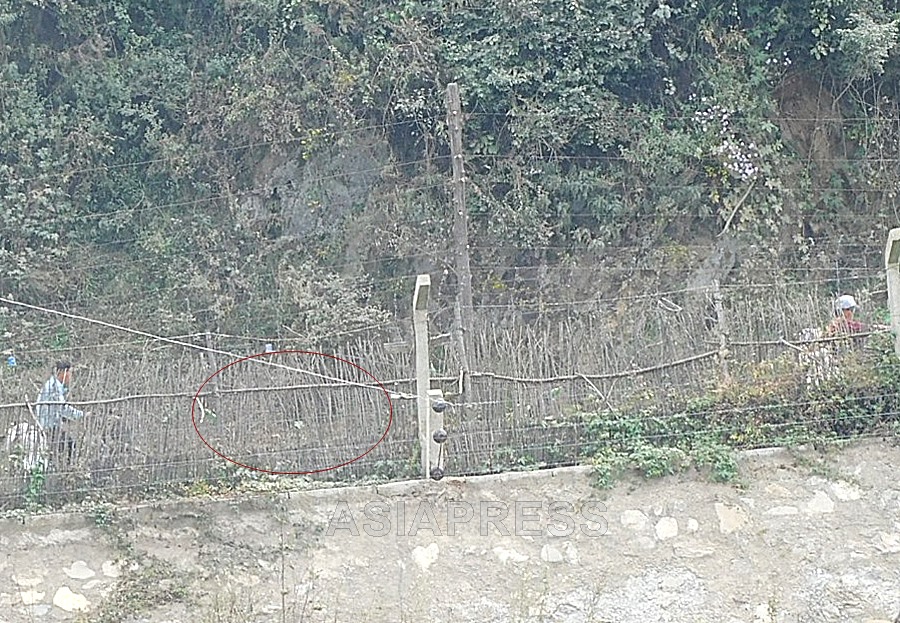
◆ Loyalty and ideological education for soldiers intensifies
“A,” the border guard, told the reporting partner that ideological and political study sessions have increased recently at bases, saying:
“The authorities are emphasizing ideology and belief in political study sessions held every day regarding the Russia-Ukraine war. They are repeating Kim Jong-un’s remarks that ‘war is a confrontation of ideology and belief before it becomes one of strength.’
They are saying that we will at some point have to reign victorious over the Americans with strength. That, they are emphasizing, is the mission and duty of soldiers who are loyal to Supreme Leader Kim Jong-un and the Workers’ Party. The study sessions have also grown longer. In the past, they were just lectures, but recently they’ve changed considerably, with question-and-answer sections and presentations.”
The Kim Jong-un regime’s policies aimed at preventing defections and border crossings are not just leading to stricter controls on the border. The regime is also building checkpoints on roads heading toward the border, deeply investigating the sentiments of ordinary people, and ensuring that border guards and local people do not become too friendly with each other. It has now become almost impossible for people to cross the border into China due to the clever and cunning policies put into place to guard the border after the outbreak of COVID-19 in January 2020. (End of series)
※ ASIAPRESS communicates with reporting partners through Chinese cell phones smuggled into North Korea.
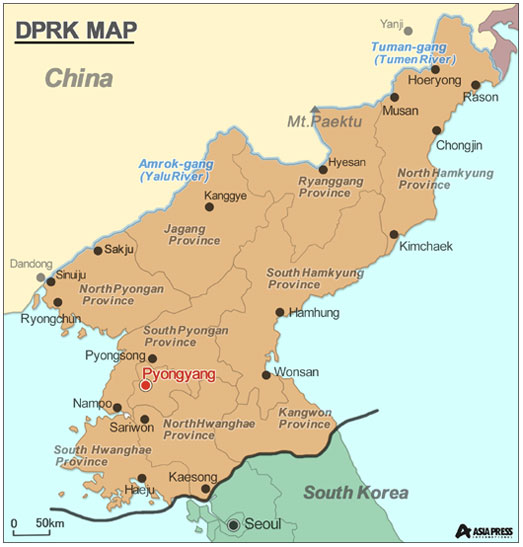
- <Inside N. Korea>Speaking to a Border Guard (1) Landmine Burial at the Korea-China Border? “Even soldiers are afraid because they don’t know where they’re buried”
- <Inside N. Korea> A recent report on conditions at farms (7) Many people mobilized to harvest this year’s good yield of potatoes… But, “several tons of potatoes are going rotten in a storage facility each day”
- <Inside N. Korea > A recent report on conditions at farms (6) Major investigation underway after end of harvest to uncover corruption by cadres…Unfair punishment causes uproar on one farm
- <Inside N. Korea> Food conditions improve in northern part as newly harvested potatoes, lessening concerns about starvation…Rice prices also fall…People say “We must do anything to survive”
- <Inside N. Korea>Opium addicts rise again as stimulants remain almost completely unavailable…Why? The police quickly clamp down on manufacture of drug

